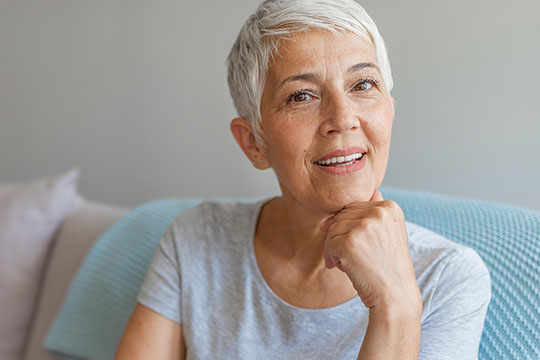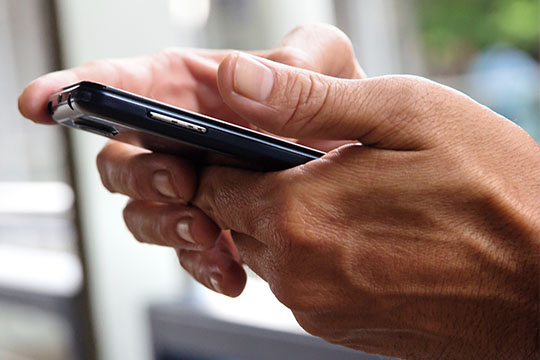
Be sure to take the time to check in with yourself and care for your mental health.
The COVID-19 global pandemic is disrupting routines and expectations, and complicating access to groceries, medication and our family and friends. We’re all concerned about the illness and its impacts, and the volume of information – while important to keep Canadians healthy and safe – can be overwhelming.
If you find your stress or anxiety levels escalating — and that’s a normal reaction — there are some things you can do to help maintain your mental and emotional well-being during this time of upheaval and uncertainty.
If you’re struggling with anything related to your physical, mental or emotional health, reach out to your physician for help. While in-person appointments are temporarily not an option for many, virtual and appointments by telephone are often an option.
Here are a few things to consider if you’re finding COVID-19 related stress increasing.
- Pinpoint what you’re finding most difficult
- Get accurate info on your own terms
- Practice social (media) distancing
- Health to yourself
- Practice patience and kindness – with yourself and others
- Reach out for help
- Ça va bien aller
Pinpoint what you’re finding most difficult
For some, losing access to their social connectedness is hard on their wellbeing, while others may struggle with making sure they get essentials while keeping their exposure risk low. Some folks may have a general sense of unease and frustration right now.
Try to sit down in peace and quiet with a pen and paper. What’s creating the greatest discomfort for you? If you list several things that are making this time difficult, which issues can you have influence or control over right now?
Keep in mind that there will be things you’ll worry about that are not in your power to change right now, but that’s okay. What’s important right now is to know and name your biggest stressors. Break them down to bite-size pieces and address the ones that you safely can in the short term.
For example, if you’re most worried about getting essentials while keeping your exposure to other people in check, consider grocery delivery services or communicate (from a safe distance) with a friend, neighbour or family member about how to co-ordinate grocery shopping and delivery. Consider outings at off-peak times, or during senior-designated shopping hours that many stores have implemented. Practise good hygiene and social distancing, and make sure you plan your outings. While outings for essential items aren’t social opportunities, they can still be anchors to look forward to during your week.
Get accurate info on your own terms
There’s a firehose of COVID-19 information right now – it’s constant, changing often, and sometimes sources are conflicting. If the unending streams of news about COVID-19 are getting to you, it’s time to take control of what you’re seeing.
Take a step back from how much news and media you’re consuming. Turn off push notifications on your phone and tablet news apps and instead access information about COVID-19 when you feel ready to. For some, that might mean limiting your news updates to morning and/or evening. For others, it might mean adjusting how you watch television – most news channels are “all COVID-19, all the time” right now. If news channels are your favourite, consider scheduling a break from them.
Use reliable sources for information such as Health Canada and the World Health Organization, which has an excellent myth busting and Q&A series on COVID-19. Your local public health agency is also a good resource for accurate information that’s relevant to your exact location. Checking in once or twice a day on breaking news updates is okay. You are unlikely to change how you’re managing your risk and impact right now if you’re self-isolating and physically distancing correctly.
Practice social (media) distancing
Facebook feeds are, for many, one long roll of COVID-19 articles and news, status updates, images and memes.
When we’re isolated at home and our normal social activities are not available to us, many of us will rely even more on Facebook and Twitter to entertain, connect and share. It can be a useful tool to keep in touch and check in on our social circles, but these platforms and the content on them can make your worry about COVID-19 worse.
If you’re feeling overwhelmed and negative after you scan your Facebook feed, collect some phone numbers from social media friends and family you normally connect with. Log out of the app or site, or turn off notifications for the app on your device so you’re not tempted to open the app every time you get that Pavlovian “ding!” Use Facetime, Skype or another free services to video chat (or the good old phone!) or share pictures and connect with the folks you want to touch base with.

If you’re feeling overwhelmed by social media feeds, try a little social media distancing! Most devices have screen time settings that can help with this.
If you’re finding it tough to disconnect, but know you need to, another option is to schedule social media time. Most devices have screen time settings to help us manage how we use our devices and our time, so you can set timers to dictate when you can access a particular app on your device.
Health to yourself
Managing what we can of our physical health has a big bearing on our mental health. There are many safe options available to us to remain physically active, eat well, rest and show ourselves grace and patience as we navigate COVID-19.
Even though we’re not able to make it to the gym, home workouts are possible with YouTube, free apps or classes offered by some gyms and fitness studios. Walking outside, if sidewalks are clear and safe, and you are following physical distancing, can also be a great option.
Eating healthily may be challenging as we all limit trips outside our home to essentials only – we might run low on fresh produce, for example, and have to rely more on frozen or canned items, or deal with replacements to normally available items as people are buying more. In addition, stores are limiting quantities of some items as well as closing earlier to allow staff more time to clean and rest. Some of us may reach for more comfort foods that – while absolutely delicious – don’t add up to optimal health when we eat too much of them.
Meal planning can be a great way to take the stress out of what to eat and when. It can also help you develop your grocery list and do shopping, and practise moderation with comfort foods.
As we’ve all heard, physical distancing, coughing or sneezing into your elbow or a disposable tissue, handwashing, not touching your face and good overall hygiene at home are essential to keeping yourself well.
Ensure you have access to your medications and don’t leave prescription refills to the last minute. While the Public Service Health Care Plan (PSHCP) is enabling fulfillment of more than 100 days’ supply of maintenance medications, be prepared for the fact that many pharmacies are implementing policies to provide 30 days of medication at a time in order to get ahead of potential shortages.
Maintain a regular schedule. Plan to go to bed and wake up at your usual times, and avoid exercise and caffeine later in the day. Sleep hygiene is important – keep your bedroom a comfortable, cooler temperature, turn down your bed, create a relaxing ritual and avoid screen time before bed.
Practice patience and kindness – with yourself and others
Be patient with yourself. Many of us are figuring out new routines and adapting to change at a rapid pace. Adjust to what you can, when you can, except for social distancing and isolating at home – we all have to adapt to that, and the sooner the better!

Have a plan in place with close friends, family and neighbours to connect regularly by phone or video chats.
You can expect to have great days and not-so-great days through this time. Have a plan in place with close friends, family and neighbours to connect regularly by phone or video chats — especially on days when one of you is facing a tougher time.
Lean in and rely on your circle. If you’re able to be supportive to someone in your circle who is having a tougher day, do it, but maintain appropriate emotional boundaries. If someone is in crisis, help that person navigate to professional support and do the same if you find yourself in crisis.
The people around you are dealing with the same struggles, from those with you at home, to your neighbours and family, and folks you may meet (from a safe distance) on your essential trips out. Extend them the same patience and grace you would hope to have someone extend to you on your worst days – and give everyone at least two metres of physical space!
Reach out for help
If you’re struggling to maintain your mental and emotional well-being right now, it’s okay. Help is available, and it’s important to reach out and access it now.
Call your physician for help, or your provincial telemedicine line. Many provinces and cities operate distress lines, and some organizations are enabling access to free or low-cost psychological counselling by telephone or virtual appointments. A quick internet search or call to your public health agency can set you in the right direction (but be prepared for wait times on the phone). The Canadian Association of Mental Health also has extensive online resources and guidance to help you cope through these challenging times.
Ça va bien aller
Earlier this month, workers in charge of field operations at the Montreal-Trudeau airport replaced the “O” in Montreal on signs with a positive message – a rainbow with the words Ça va bien aller, which means It will be okay. Rainbows have become a heartening symbol during this time, and many have been drawing similar messages of hope in their windows, and on sidewalks and buildings across Quebec.
Some creative employees at Montreal’s international airport have updated its façade with a welcome message of hope. (Credit: Aéroport de Montréal)
When you’re overwhelmed, remember: ça va bien aller. Eventually, it will be okay. Right now, we’re all still working to flatten the curve of the spread of COVID-19. Try to remember that Canada has a best-in-the-world public service that is overseeing the country’s response to this crisis, from public health to the economy. We have access to a strong health-care system if we are sick.
Eventually, parks, our homes, gyms and stores will re-open, and normal activities will resume. It’s difficult to say when and what our comeback will be like – and that uncertainty can be difficult – but eventually, it will be okay.


